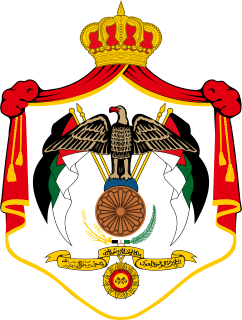
General elections were held in Myanmar on 27 May 1990, the first multi-party elections since 1960, after which the country had been ruled by a military dictatorship. The elections were not meant to form a parliamentary government, but rather to form a parliament-sized constitutional committee to draft a new constitution.
Federal elections were held in Switzerland on 28 October 1928. Although the Social Democratic Party received the most votes, the Free Democratic Party remained the largest party in the National Council, winning 58 of the 198 seats.
Federal elections were held in Switzerland on 25 October 1931. Although the Social Democratic Party received the most votes, the Free Democratic Party remained the largest party in the National Council, winning 52 of the 187 seats.
Federal elections were held in Switzerland on 25 October 1959. The Social Democratic Party and the Free Democratic Party emerged as the largest parties in the National Council, each winning 51 of the 196 seats.
Federal elections were held in Switzerland on 30 October 1955. The Social Democratic Party emerged as the largest party in the National Council, winning 53 of the 196 seats.

General elections were held in Burma to vote for 202 out of 250 seats to the Burmese Chamber of Deputies; the remaining 48 members ) were elected unopposed as no opposition candidates stood against them.

General elections were held in Burma over several months between June 1951 and April 1952 due to internal conflict within the country.

General elections were held in Burma on 9 April 1947 to form the basis of a constituent assembly that would design a constitution once independence from the United Kingdom had been achieved. They were the first elections in Burma since its separation from India under the British Raj. Voter turnout was 49.8%. However, Aung San was assassinated three months later, resulting in U Nu becoming the first Prime Minister of Burma.

The Arakan League for Democracy is a political party active in Rakhine State, Myanmar (Burma).
Elections to the Supreme Soviet were held in the Soviet Union on 12 March 1950.

General elections were held in Jordan on 29 August 1951. As political parties were banned at the time, all candidates ran as independents, although some affiliated with the Jordanian Communist Party, the Ba'ath Party the Arab Constitutional Party and the Umma Party all won seats.

General elections were held in Burma between 1 and 15 January 1978. The country was a one-party state at the time, with the Burma Socialist Programme Party as the sole legal party. It therefore won all 464 seats in People's Assembly. Voter turnout was reported to be 93.3%.

General elections were held in Burma between 4 and 18 October 1981. The country was a one-party state at the time, with the Burma Socialist Programme Party as the sole legal party. It therefore won all 475 seats in People's Assembly. Voter turnout was reported to be 94.6%.

General elections were held in Burma between 6 and 20 October 1985. The country was a one-party state at the time, with the Burma Socialist Programme Party as the sole legal party. It therefore won all 489 seats in the People's Assembly.

General elections were held in Portugal on 28 April 1918, following a coup by Sidónio Pais in December 1917. The elections were boycotted by the Democratic Party, the Evolutionist Party and the Republican Union, who had won over 90% of the seats in the 1915 elections.

Parliamentary elections were held in Portugal on 30 October 1938. The country was a one-party state at the time and the National Union was the only party to contest the elections, with no opposition candidates allowed to run.

Parliamentary elections were held in Portugal on 1 November 1942. The country was a one-party state at the time and the National Union was the only party to contest the elections, with no opposition candidates allowed to run.
Federal elections were held in Switzerland on 29 October 1939. The Free Democratic Party emerged as the largest party in the National Council, winning 49 of the 187 seats. Due to the outbreak of World War II, there were no elections in nine of the 25 cantons; Appenzell Ausserrhoden, Lucerne, Neuchâtel, Schwyz, Solothurn, Ticino, Valais, Vaud and Zug. In what became known as "silent elections", a total of 55 candidates were elected unopposed.

The Mon National Party is a political party in Myanmar (Burma).

The Democracy and Human Rights Party is a political party in Myanmar representing the Rohingya of northern Rakhine State.











